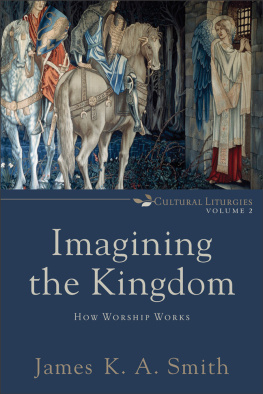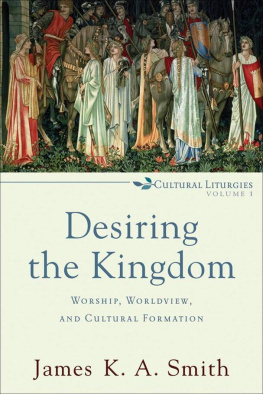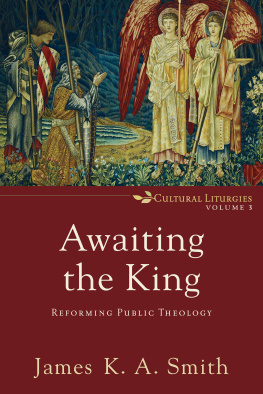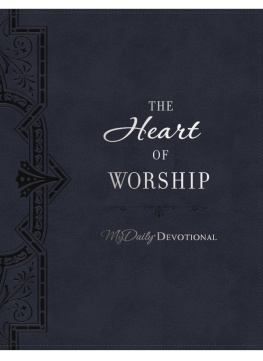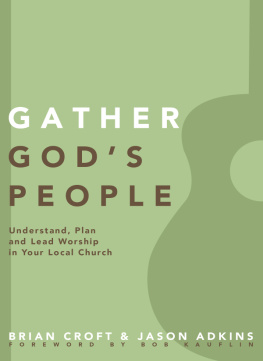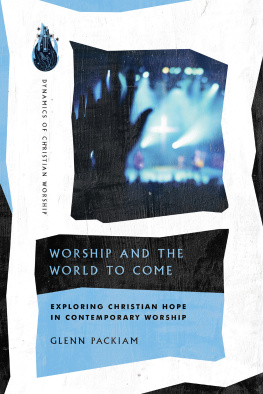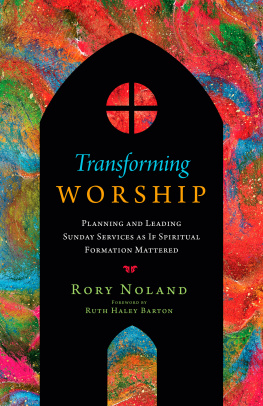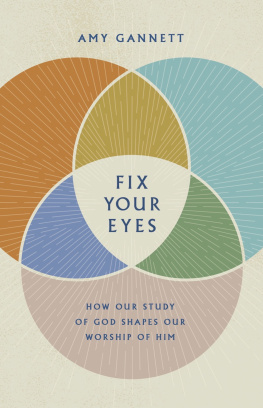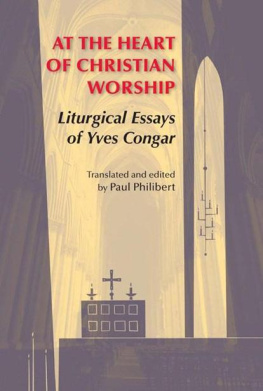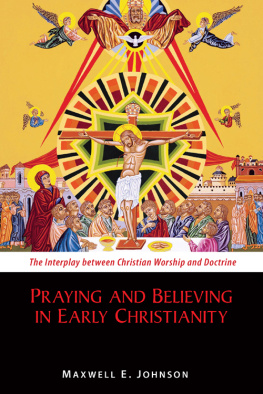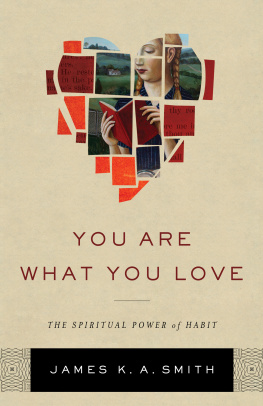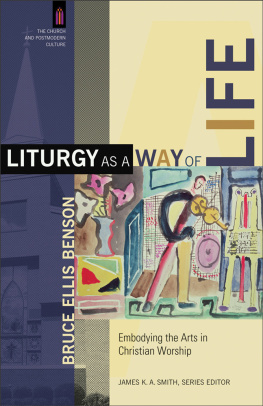
2013 James K. A. Smith
Published by Baker Academic
a division of Baker Publishing Group
P.O. Box 6287, Grand Rapids, MI 49516-6287
www.bakeracademic.com
Ebook edition created 2013
All rights reserved. No part of this publication may be reproduced, stored in a retrieval system, or transmitted in any form or by any meansfor example, electronic, photocopy, recordingwithout the prior written permission of the publisher. The only exception is brief quotations in printed reviews.
ISBN 978-1-4412-4053-8
Library of Congress Cataloging-in-Publication Data is on file at the Library of Congress, Washington, DC.
Scripture quotations are from the New Revised Standard Version of the Bible, copyright 1989, by the Division of Christian Education of the National Council of the Churches of Christ in the United States of America. Used by permission. All rights reserved.
The internet addresses, email addresses, and phone numbers in this book are accurate at the time of publication. They are provided as a resource. Baker Publishing Group does not endorse them or vouch for their content or permanence.
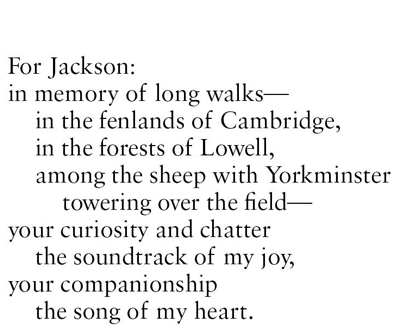
These beauteous forms,
Through a long absence, have not been to me
As is a landscape to a blind mans eye:
But oft, in lonely rooms, and mid the din
Of towns and cities, I have owed to them,
In hours of weariness, sensations sweet,
Felt in the blood, and felt along the heart;
And passing even into my purer mind
With tranquil restoration:feelings too
Of unremembered pleasure: such, perhaps,
As have no slight or trivial influence
On that best portion of a good mans life,
His little, nameless, unremembered, acts
Of kindness and of love. Nor less, I trust,
To them I may have owed another gift,
Of aspect more sublime; that blessed mood,
In which the burthen of the mystery,
In which the heavy and the weary weight
Of all this unintelligible world,
Is lightened:that serene and blessed mood,
In which the affections gently lead us on,
Until, the breath of this corporeal frame
And even the motion of our human blood
Almost suspended, we are laid asleep
In body, and become a living soul:
While with an eye made quiet by the power
Of harmony, and the deep power of joy,
We see into the life of things.
William Wordsworth, from Lines Composed a Few Miles above Tintern Abbey (1798)
Contents
Cover
Title Page
Copyright Page
Dedication
Epigraph
List of Sidebars
Preface
Acknowledgments
How to Read This Book
For Practitioners
For Scholars
Introduction: A Sentimental Education: On Christian Action
The End of Christian Education and/as the End of Worship
Situating Intellect: Educating for Action
Imagining the Kingdom
Part 1: Incarnate Significance: The Body as Background
1. Erotic Comprehension
Perceiving (by) Stories
The Geography of Desire: Between Instinct and Intellect
My Body, My Horizon
Being-in-the-World with Schneider: A Case Study
Erotic Comprehension: On Sex, Stories, and Silence
The Primacy of Perception
2. The Social Body
The Critique of Theoretical Reason
Habitus as Practical Sense
Belief and the Body: The Logic of Practice
In corp oration and Initiation: Writing on the Body
Part 2: Sanctified Perception
3. We Tell Ourselves Stories in Order to Live: How Worship Works
Imaginative, Narrative Animals
The Primacy of Metaphor and the Aesthetics of Human Understanding
A General Poetics: Imagination, Metaphor, Narrative
The iPhone-ization of Our World(view): Compressed Stories and Micropractices
4. Restor(y)ing the World: Christian Formation for Mission
Sanctifying Perception: Re-Narration Takes Practice
Redeeming Ritual: Form Matters
Redeeming Repetition: On Habituation
Redeeming Reflection: On Liturgical Catechesis and Christian Education
Name Index
Subject Index
Notes
Back Cover
Preface
Novelists often attest that their characters take on a life of their own. So while the writer begins with a plana story line, character sketches, a sense of the ending to which all of it is headedthe creative process is full of surprises. Not until the novelist is mired in the mess of production could she have known that the protagonist should go there , should meet him , should say that . Creators are not masters of the universe they create; they, too, are recipients of that world and need to follow the path on which they are taken, even if they might have invented it to begin with.
In my preface to Desiring the Kingdom , I sketched a program for the Cultural Liturgies trilogy in which volumes 2 and 3 would be scholarly monographs aimed at a narrower, more specialized audience of scholars. The idea was for volume 1 to provide an accessible overview of the model and argument, and then for volumes 2 and 3 to be narrow, deep explorations of particular aspects of the argument (philosophical anthropology in volume 2 and politics in volume 3). In the three years since I completed Desiring the Kingdom , during which I have had a number of opportunities to share and discuss my core argument with a wide range of audiences, I have decided to revise that original plan for a couple of related reasons.
First, as it turns out, Desiring the Kingdom was not as accessible as I thought it was! While that first volume may have seemed to me like a relatively popular sketch, as is often the case, scholars are not very good judges of what counts as accessibility. Many of the readers of Desiring the Kingdom perceived it as a challenging academic book, though obviously scholarly colleagues in philosophy and theology saw it differentlya bit whimsical in places, a little imprecise in others. Such is the fate of a hybrid book: too many footnotes and references to German philosophers to qualify as popular; not enough footnotes and too many creative asides to be properly academic. Nonetheless, Ive decided to live in that between spaceto inhabit that hybridityand ultimately to continue in that vein for all of the volumes of the Cultural Liturgies trilogy.
I recognize that there is a sense in which Desiring the Kingdom is a hypocritical book, or at least a book at risk of performative contradiction. On the one hand, the book argues that we are, primarily and at root, affective animals whose worlds are made more by the imagination than by the intellectthat humans are those desiring creatures who live off of stories, narratives, images, and the stuff of poiesis . On the other hand, the book tries to make this case in a didactic way, on a theoretical register, articulating a philosophical anthropology. Desiring the Kingdom recognized the limits of such a project and tried to navigate its internal tensions by including a number of forays into the arts and literature, with long digressions in which all of this is pictured in novels, films, and poetry. But still.
While it might seem ludicrous to even breathe about this in the same sentence with Marcel Proust, I was intrigued to discover that the young Proust faced a similar challenge. In one of his earliest writing projects, before la recherche du temps perdu ( In Search of Lost Time ), Proust was up against a similar challenge in terms of genre, working in the cracks between them. In his notebooks around the time he was working on the manuscript that we now know as Contre Sainte-Beuve , Proust would write: Should I make it a novel, or a philosophical studyam I a novelist? While it is hard for us to imagine him as anything but a novelist (indeed, Proust is perhaps the quintessential novelist), its interesting to see Prousts vacillation in this regard. He was a writer in search of a form .

